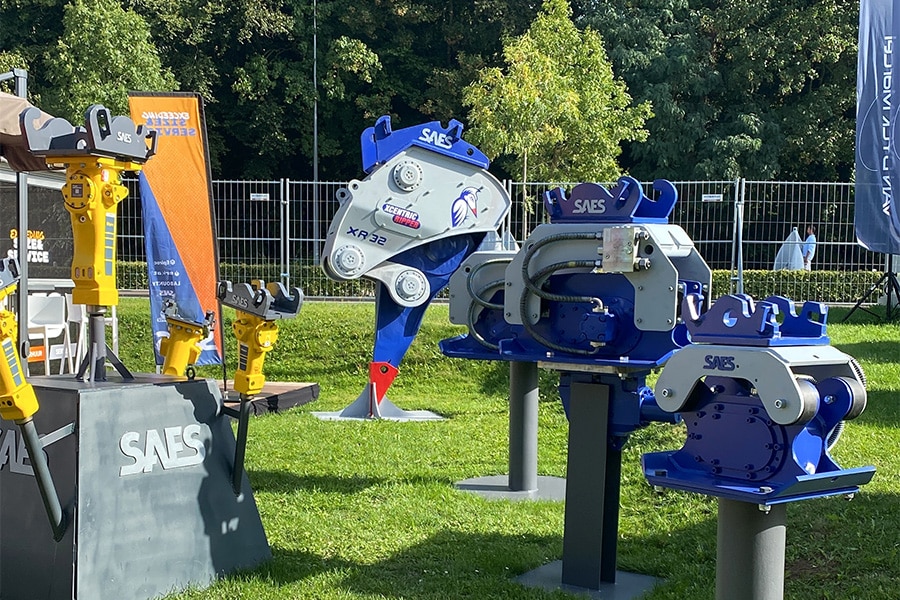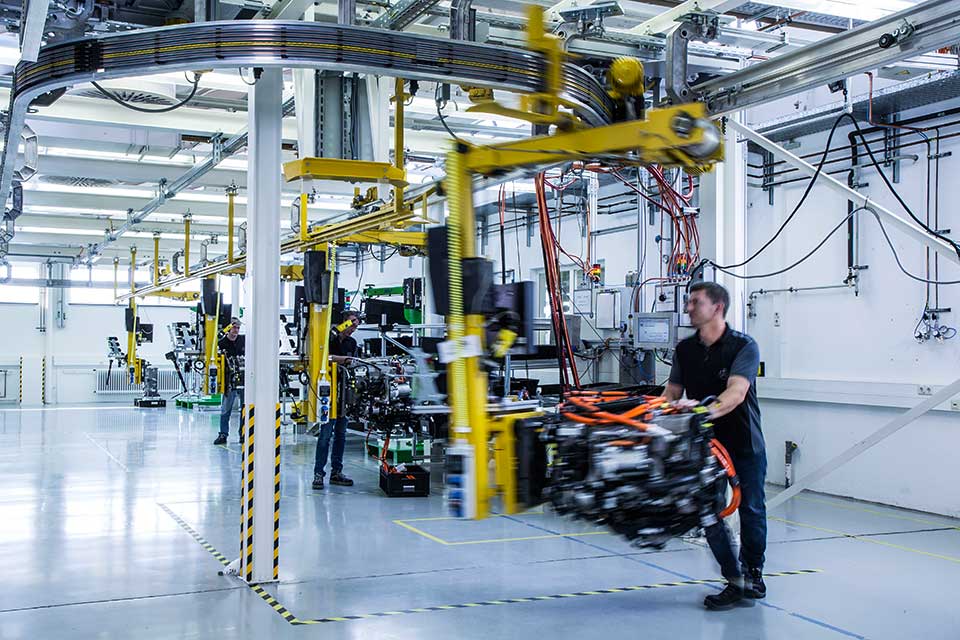
Daimler Truck AG and Volvo Group fully commit to hydrogen fuel cells
Daimler Truck AG and Volvo Group, two market leaders in the commercial vehicle sector, today presented the roadmap for cellcentric, their pioneering new fuel cell technology joint venture. The industry's first such commitment aims to accelerate the use of hydrogen fuel cells in long-haul trucks et al. Cellcentric's ambition is to grow into a leading global manufacturer of fuel cell systems and will build one of the largest fuel cell system series production plants to be commissioned in 2025. To accelerate the implementation of hydrogen-based fuel cell systems, cellcentric's two shareholders call on the EU to create a harmonized policy framework to make the development of the technology a viable commercial solution.
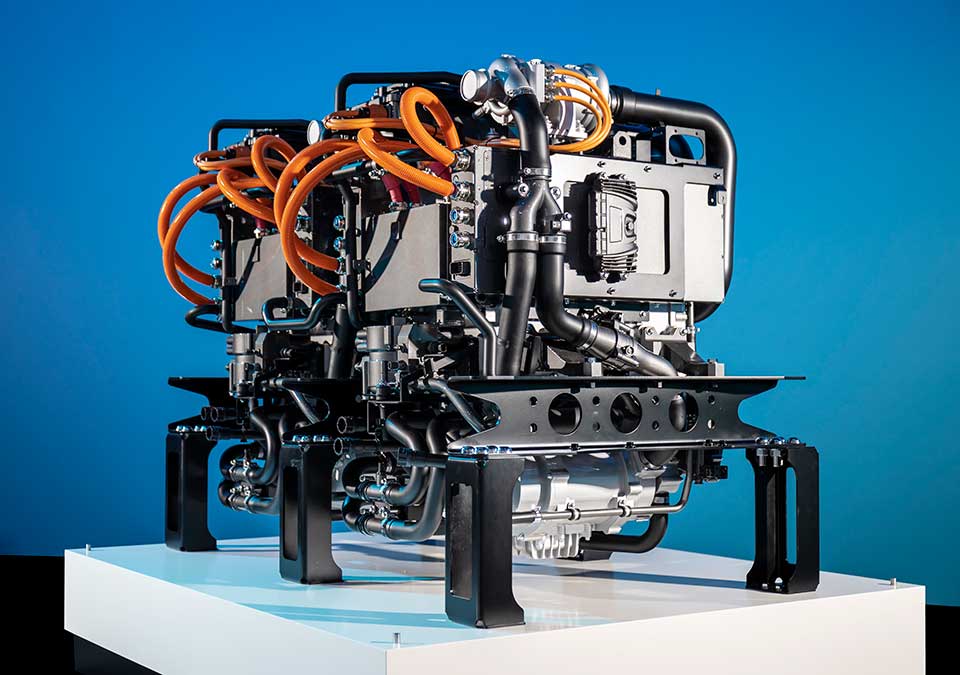
Those ambitions were unveiled today as part of an exclusive digital launch led by Martin Daum, CEO of Daimler Truck AG, and Martin Lundstedt, CEO of Volvo Group. Cellcentric, created to meet the 2050 sustainable transportation goals and help build a carbon-neutral Europe, will develop, manufacture and sell fuel cell systems, both for long-haul trucks and other applications. The joint venture boasts decades of expertise and development by both Daimler Truck AG and Volvo Group.
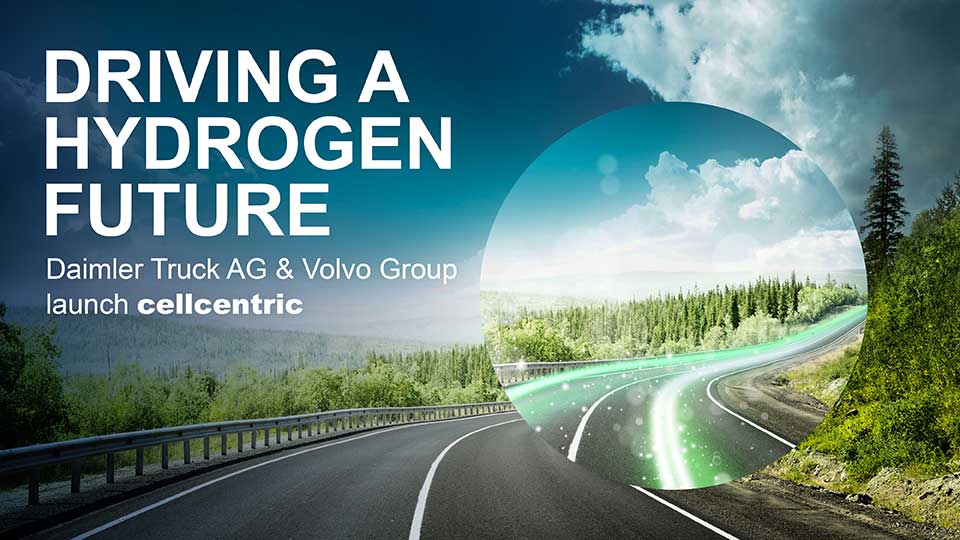
According to Daimler Truck AG and Volvo Group, battery- and fuel cell-powered vehicles can complement each other depending on individual customers' usage scenarios. Battery-powered vehicles are more likely to lend themselves to lighter loads and shorter distances while fuel cell vehicles are preferred for heavier loads and longer distances.
Martin Daum, Chairman of the Board of Management of Daimler Truck AG and Member of the Board of Management of Daimler AG: "Hydrogen-powered fuel cell trucks are crucial for future CO2-neutral transportation. Combined with pure battery-powered vehicles, they enable us to provide our customers with the best, locally CO2-neutral transportation solutions. This is not possible with battery-powered trucks alone. That is why we are committing to our fuel cell company cellcentric together with our partner, Volvo Group. Together we are making every effort to accelerate the development of the technology and preparation for series production. As for the necessary hydrogen infrastructure, it is clear that 'green' hydrogen is the only sensible choice in the long term."
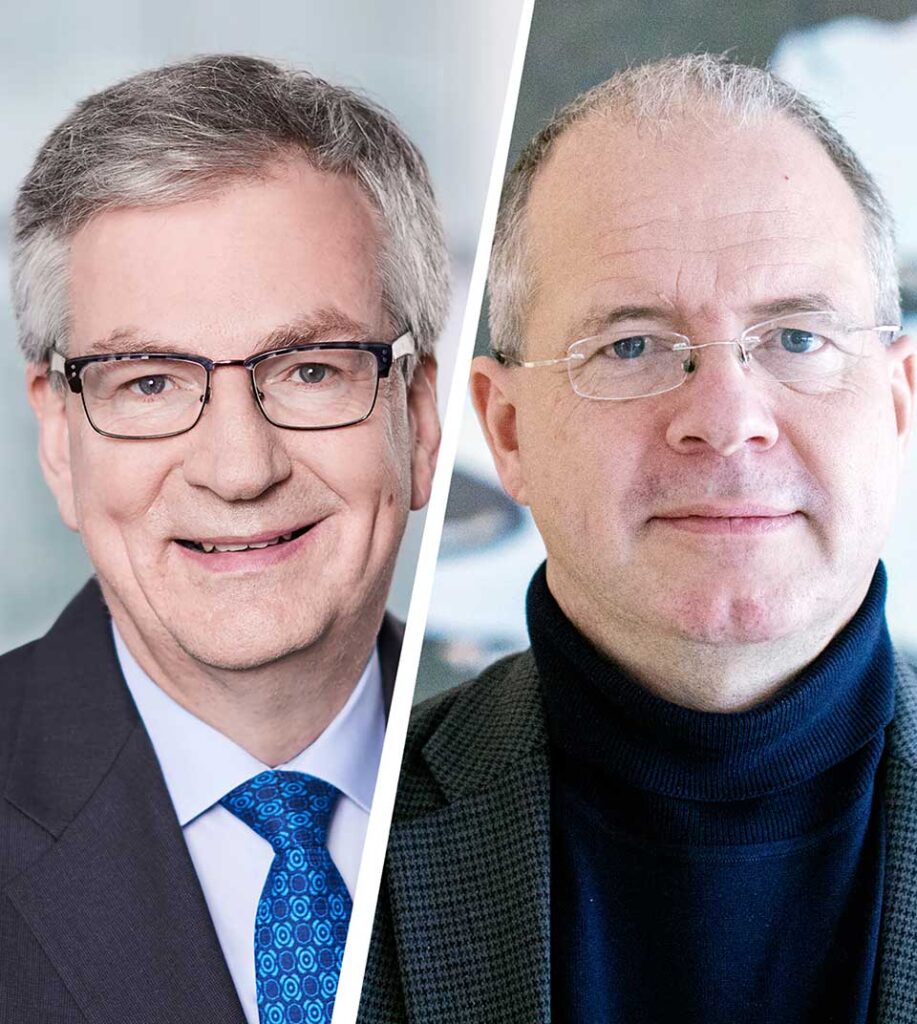
Martin Lundstedt, CEO of Volvo Group said, "Our joint ambition is to meet the targets in the Paris Agreement to reduce CO2-neutral. We are convinced that hydrogen technology will play a crucial role in achieving that milestone. At the same time, however, we know that there is much more to do than just electrifying machines and vehicles. For example, there needs to be closer collaboration between public and private stakeholders to develop the necessary technology and infrastructure. This is why we are calling on policymakers and governments around the world to take concerted action to make hydrogen a success. Partnerships like cellcentric are crucial to deliver on our commitment to carbon-free road transportation."
With the support of Daimler Truck AG and Volvo Group, the major European truck manufacturers are therefore calling for the development of a network of ultra-performance hydrogen refueling stations for heavy vehicles. That network should count 300 filling stations by 2025 and about 1,000 stations by 2030 at the latest. This joint initiative, which uses hydrogen as a carrier for green electricity to electrically power long-haul trucks, is crucial to decarbonizing road transport.
Since CO2-neutral trucks are currently sensitively more expensive than conventional vehicles, a policy framework is needed to ensure demand and affordability. According to Daimler Truck AG and Volvo Group, this can be done through incentives for CO2-neutral technologies and a tax system based on carbon emissions and energy content. An emissions exchange system may be an additional option.
Clear roadmap for series production of fuel cell systems and fuel cell trucks
Cellcentric is currently working out plans for its large-scale series production. More details and a decision on the production site will be revealed during 2022. As an important step toward series production, preparations are being made for the production of preproduction models at a new site in Esslingen near Stuttgart. In parallel, cellcentric is scaling up its prototype output.
Daimler Truck AG and Volvo Group plan to deploy fuel cell trucks for customer field tests in three years and set the goal of moving to series production by the second half of this decade. All vehicle-related activities will remain independent as both companies will still remain competitors for all vehicle and product ranges and for the integration of fuel cells into their products.
Joint venture for fuel cell systems
On March 1, 2021, Daimler Truck AG and Volvo Group established cellcentric. To this end, Volvo Group acquired a 50 percent stake in the existing Daimler Truck Fuel Cell GmbH & Co. KG for about 600 million euros, cash and no debt. In November 2020, Daimler Truck AG and Volvo Group signed a binding agreement for the joint venture. A non-binding agreement had already been signed in April of the same year.
Cellcentric employs more than 300 hyper-specialized experts in interdisciplinary teams at locations in Nabern, Stuttgart (Germany) and Burnaby (Canada). About 700 patents have been issued to date, underscoring the company's leadership role in technological development.


